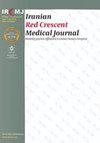糖尿病和非糖尿病患者COVID-19住院后与健康相关生活质量相关的因素:一项横断面研究
IF 0.2
4区 医学
Q3 MEDICINE, GENERAL & INTERNAL
引用次数: 0
摘要
背景:糖尿病是一种具有致命并发症的非传染性疾病。糖尿病患者非常容易出现COVID-19副作用和持续的出院后症状,从而影响健康相关生活质量(HRQoL)。目的:本研究旨在评估糖尿病和非糖尿病COVID-19患者住院后的HRQoL及影响因素。方法:在一项横断面研究中,随机选择2020年1月至2021年10月在伊朗锡尔詹住院的220例糖尿病和非糖尿病COVID-19患者。采用欧洲生活质量5维度5水平版本(EQ-5D-5L)问卷作为因变量测量HRQoL,其维度(包括流动性、自我保健、日常活动、疼痛/不适和焦虑/抑郁)作为自变量。此外,还使用了一个清单来确定可能影响HRQoL参与者的HRQoL决定因素,包括年龄、性别、教育程度、家庭收入、家庭所有权、职业、家庭成员人数和获得保健服务的机会。结果:新冠肺炎糖尿病患者HRQoL平均评分(0.766±0.110)明显低于非糖尿病患者(0.859±0.077)。糖尿病组的EQ-5D-5L得分在年轻参与者、男性、有工作的受试者、受教育程度较高、收入较高、健康状况较高、有补充保险、获得医疗服务和家庭成员较少的患者中显著较高。根据Betamix模型的结果,教育程度和糖尿病是HRQoL评分的显著独立预测因子。结论:糖尿病COVID-19患者住院后HRQoL明显下降。这一下降可能是由于2019冠状病毒病对糖尿病患者的副作用更多,以及这一时期卫生服务的利用率降低。建议卫生部门在新冠肺炎疫情期间采取远程医疗、提供家庭服务或延长处方时间等措施,改变糖尿病患者的管理方式。本文章由计算机程序翻译,如有差异,请以英文原文为准。
Factors Associated with Health-related Quality of Life after Hospitalization for COVID-19 in Diabetic and Non-diabetic Patients: A Cross-sectional Study
Background: Diabetes is a non-communicable disease with fatal complications. Diabetic patients are highly susceptible to COVID-19 side effects and persistent post-discharge symptoms that impact health-related quality of life (HRQoL). Objectives: This study aimed to assess HRQoL and examine factors affecting diabetic and non-diabetic COVID-19 patients after hospitalization. Methods: In a cross-sectional study, 220 diabetic and non-diabetic COVID-19 patients were randomly selected after hospitalization in Sirjan, Iran, from January 2020 to October 2021. The European Quality of Life 5 Dimensions 5 Level Version (EQ-5D-5L) questionnaire was used to measure HRQoL as a dependent variable and its dimensions (including mobility, self-care, usual activities, pain/discomfort, and anxiety/depression) as independent variables. In addition, a checklist was used to identify determinants of HRQoL, including age, gender, education, family income, household ownership, occupation, number of family members, and access to health services, that might affect the HRQoL participants. Results: The mean HRQoL score in COVID-19 diabetics (0.766±0.110) was significantly lower than that in their non-diabetic counterparts (0.859±0.077). The EQ-5D-5L scores in the diabetic group were significantly higher in younger participants, men, employed subjects, patients with higher educational levels, higher income, higher health status, supplemental insurance, access to health services, and fewer family members. According to the results of the Betamix model, education and diabetes were significant independent predictors of HRQoL scores. Conclusion: Diabetic COVID-19 cases experienced a significant decrease in HRQoL after hospitalization. This drop might have been due to more side effects of COVID-19 in diabetic patients and lower utilization of health services during this period. It is suggested that the health sector changes the management of diabetics during the COVID-19 epidemic by taking measures such as using telemedicine, providing home services, or prescribing medications for a longer period.
求助全文
通过发布文献求助,成功后即可免费获取论文全文。
去求助
来源期刊

Iranian Red Crescent Medical Journal
MEDICINE, GENERAL & INTERNAL-
CiteScore
1.16
自引率
0.00%
发文量
0
期刊介绍:
The IRANIAN RED CRESCENT MEDICAL JOURNAL is an international, English language, peer-reviewed journal dealing with general Medicine and Surgery, Disaster Medicine and Health Policy. It is an official Journal of the Iranian Hospital Dubai and is published monthly. The Iranian Red Crescent Medical Journal aims at publishing the high quality materials, both clinical and scientific, on all aspects of Medicine and Surgery
 求助内容:
求助内容: 应助结果提醒方式:
应助结果提醒方式:


